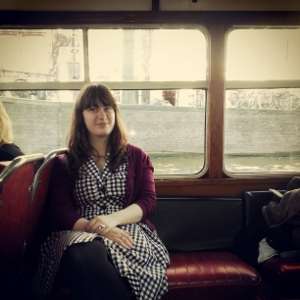Edvard Grieg’s Peer Gynt is one of those works that never gets performed with all the context in which it was composed. The two suites Grieg compiled are often played and well-loved, but Peer Gynt was in fact written as the music for the dramatization of Ibsen’s poem of the same title. The Barbican Centre played host to a performance that presented a more authentic picture, with six actors, three soloists, a mixed chorus and orchestra. The original piece is around five hours long and tonight’s was two hours, but even so, the picture painted by the performance was enchanting.
The six actors recounting the story of Peer Gynt were all students of the Guildhall School of Music & Drama, reading from a shortened text of the Ibsen poem, translated into English. The BBC Singers sung and soloists Miah Persson, Ann Hallenberg and Johannes Weisser sung in the original Norwegian, thereby retaining the absolute strength of Grieg’s writing for voice.
Consisting of five acts, Peer Gynt is the story of a rather annoying man, from early adulthood to old age. He kidnaps women, goes on adventures, upsets quite a few people somewhere along the way, and never loses his spirit. All the while his love, Solveig, is waiting for him at home and it is she in the end who saves him. Peer Gynt was played with much gusto by Patrcik Walshe McBride, who had both the charm and cockiness that suited the character.
The first act has some beautiful folk-like melodies originally played on a traditional Norwegian violin called the Hardanger fiddle, but the concertmaster and first violist of the BBC Symphony Orchestra certainly did them justice. These melodies set the scene for a wedding that Peer Gynt is interrupting – he meets Solveig and is drawn to her, but instead he ends up kidnapping the bride, Ingrid. Act II starts with Peer discarding Ingrid: he is no longer interested in her. Instead, he goes after a girl in green who is the daughter of the Troll King. Grieg’s music for “In the Hall of the Mountain King” is one of his most famous pieces, usually performed by just an orchestra, but the addition of the BBC Singers added even more drama and grandeur to the scene.
Conductor Marc Minkowski seemed as excited by the music as the listeners, though throughout the performance he kept a close eye on the tempi and kept control over the orchestra. In a performance that includes not only a chorus and orchestra, but actors and soloists as well, it is important for the conductor to keep on top of things and that was certainly the case here. Minkowski gestured towards the actors as well as the musicians, making sure that despite their position at the front of the stage, the actors were an integrated part of the whole performance.
Act IV was particularly memorable for a few reasons. The storyline gets more bizarre; Peer has gone off to Africa and is hailed as a prophet by a Bedouin camp. It is also the first act where the soloists appear; mezzo-soprano Ann Hallenberg singing the “Arabian Dance”, baritone Johannes Weisser in “Peer Gynt’s Serenade” and Miah Persson in “Solveig’s Song”. The “Arabian Dance”, performed by Hallenberg and the women’s chorus, was stunning, with Hallenberg’s performance being more than convincing. Weisser’s turn as Peer Gynt in his serenade was superbly sung, but lacked the charisma of Hallenberg and Persson. Persson’s interpretations of “Solveig’s Song”, and in Act V “Solveig’s Cradle Song” were faultless and heartbreaking, with the singer’s serene presence truly drawing all attention.
Though all actors were excellent this evening, special mention should go to Tom Lincoln. He tackled the strange roles of “The Boyg” and “the Button-moulder” which much humour and confidence, making a pleasant contrast with the excited Peer Gynt. The BBC Symphony Orchestra and BBC Singers gave a powerful performance of the music, which after this performance, everyone present will now hear in a different light.


